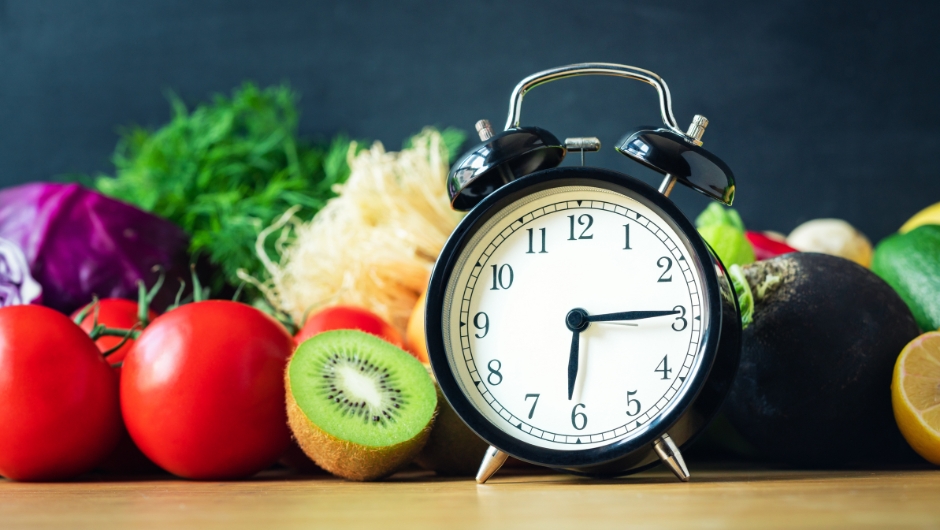The Ayurvedic Science of Meal Timing

In Ayurveda, one powerful principle often overlooked is “time.” Ayurveda believes that not just what you eat, but when you eat it plays a major role in how your body digests, absorbs, and responds to food. Let’s explore how aligning your diet with the Ayurvedic body clock can boost your digestion, prevent diseases, and improve overall well-being.
Understanding the Ayurvedic Clock
According to Ayurveda, the day is divided into three main time periods, each governed by one of the three doshas:
- Kapha (6 AM – 10 AM) – Heavy, slow, cool energy
- Pitta (10 AM – 2 PM) – Hot, sharp, strong digestive energy
- Vata (2 PM – 6 PM) – Light, dry, moving energy
By eating the right foods during these periods, you support the body’s natural rhythms and digestion.
Morning (6 AM – 10 AM): Kapha Time
The body is just waking up and naturally feels heavier, colder, and less active. This is not the ideal time for heavy meals.
What to Eat:
- Lukewarm water or Triphala water to activate digestion
- Light fruits like apple, papaya, or figs
- A pinch of honey if needed (balances Kapha)
What to Avoid:
- Milk, as it increases mucus and heaviness
- Fried or heavy foods, which burden weak morning digestion
Midday (10 AM – 2 PM): Pitta Time
This is the period of strongest digestive fire (Agni). The body is active, and enzymes are at their peak.
What to Eat:
- Your main meal of the day
- Balanced foods like roti, rice, dal, sabzi, and ghee
- Warm water or herbal water to aid digestion
What to Avoid:
- Yogurt, especially in summer (it increases heat)
- Cold drinks or citrus fruits, which may disturb Pitta
Afternoon (2 PM – 5 PM): Vata Time
This is the time when the mind and senses are most active. Digestion slows a bit, and dryness increases.
What to Eat:
- Light snacks like soaked almonds, walnuts, or raisins
- Herbal teas made with fennel, cumin, or coriander
What to Avoid:
- Raw fruits, which may aggravate Vata and cause gas or bloating
Evening (5 PM – 8 PM): Winding Down
The body prepares to rest. Digestion weakens again, so food should be light and calming.
What to Eat:
- Light fruits or roasted chana (if hungry before dinner)
- Early dinner between 6:30 PM and 8 PM
- Meals like khichdi, moong dal soup, or lightly steamed vegetables
Heavy, fried, or spicy food at this time can lead to poor digestion and disturbed sleep.
Night (8 PM – 10 PM): Ideal Time for Milk
If you want to drink milk, this is the best time. When taken correctly, milk can act as a nourishing and calming tonic.
How to Take:
- 1 cup of warm cow’s milk
- You may add turmeric, cardamom, or nutmeg for better effect
Avoid with Milk:
- Citrus fruits (like oranges or lemons)
- Salted snacks or khichdi
- Fish or sour foods
These combinations are called Viruddha Ahara (incompatible foods) and can lead to skin issues, indigestion, or toxins in the body.
Key Takeaways
- Morning: Start light – warm water and fruits
- Afternoon: Have your heaviest and most complete meal
- Evening: Eat light and early
- Night: If taking milk, keep it warm and pure
- Fruits: Best taken on an empty stomach or at least 2 hours before meals
- Avoid: Random eating times and incompatible food combinations
Ayurveda teaches us that food is not just about nutrition – it’s about timing, environment, and body constitution. When you align your meals with the body’s natural dosha cycles, you improve digestion, avoid diseases, and live in harmony with nature.